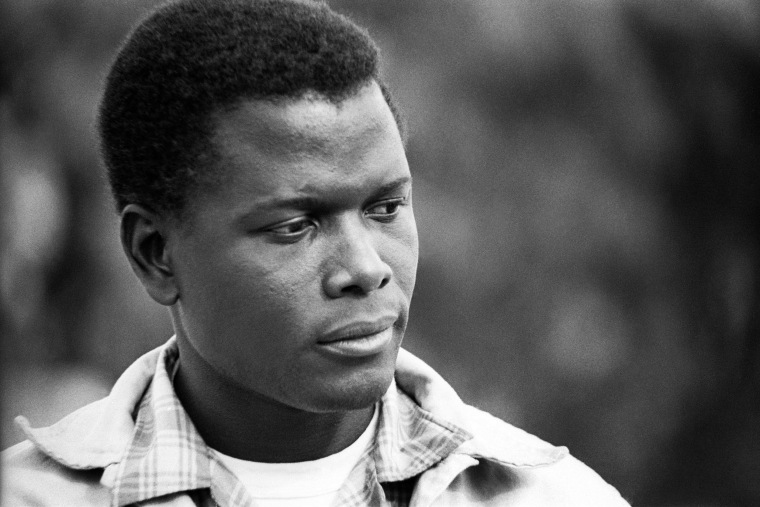The outpouring of eulogistic messages from iconic Black actors and filmmakers following Sidney Poitier’s passing on Thursday is just one testament to his legendary status. Poitier, the Bahamian leading man and first Black person to win a best actor Oscar for his role in “Lillies in the Field,” is your favorite’s favorite.
From Viola Davis, to Wendell Pierce, to Kerry Washington and more, stars rushed to reflect on Poitier’s life once the news hit Friday that he’d passed. “Sidney was my inspiration, my guiding light, my friend,” Morgan Freeman said.
And it’s easy to see why. For Black people, Sidney Poitier scaled the fence keeping Black performers siloed in stereotypical roles — and made it to the other side. More importantly, when he entered that unfamiliar territory, he remained uncompromisingly Black, becoming an archetype for others wanting to retain their dignity while starring alongside white people.
For example, in 1967’s “In the Heat of the Night,” we see Poitier playing Virgil Tibbs, a heady, stern, lawyer daring enough to smack white racists and challenge police who refuse to respect him. “Virgil — that’s a funny name for a n----- boy that comes from Philadelphia. What do they call you up there?” Poitier’s policeman costar asks in the film.
“They call me Mr. Tibbs,” he responded, pensively.
It’s one of the most heralded, emblematic scenes in Poitier’s career, particularly for Black people who know the history of Black performers playing meek, secondary characters subjected to white people’s whims. And Poitier’s career is chock full of roles that were similarly audacious, from 1967’s “Guess Who’s Coming to Dinner?” — in which he marries a white woman — to “To Sir, With Love,” another 1967 classic in which he stars as a Black, British teacher.
And he wasn’t coy about his reason for choosing these roles.
“When I set out to become an actor, I had set myself a standard. I knew what it was to be uncomfortable in a movie theater watching unfolding on the screen images of myself — not me, but black people — that were uncomfortable,” Poitier said in a 2008 interview with Larry King.
“So I naturally assumed that the only participation I would ever have in films would have to be of such a nature that I would probably never work," he continued. “I became an actor because I had to prove a point."
To me, the legacy of Sidney Poitier is a willingness to carry that mantle, and an openness to sharing its privilege and power with his own, Black people.

